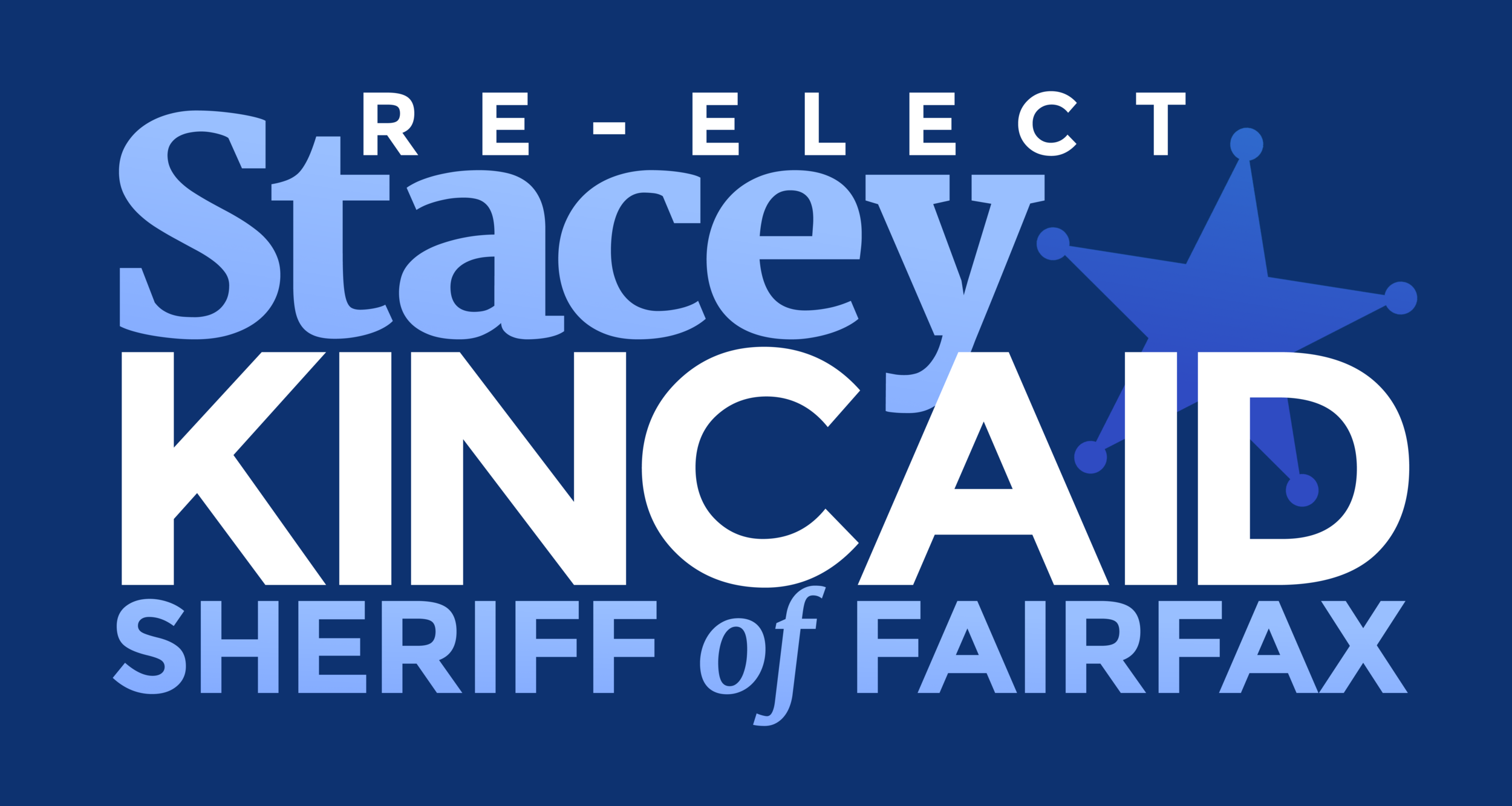STAR Program
Striving To Achieve Recovery (S.T.A.R.) Program
A critical component to the role of law enforcement in addition to keeping our communities safe and apprehending criminals is the incarceration and hopeful rehabilitation of those individuals. Sheriff Kincaid takes her job of caring for what happens to inmates seriously. Stacey knows that success is when an individual who has made an unfortunate mistake serves their time paying back their debt to society, but is also reintroduced to the outside world with a genuine opportunity to become a positive part of our society.
Recognizing that up to 60 percent of inmates in her jail have addictions and 40 percent have a diagnosable mental illness, Sheriff Kincaid initiated the Striving To Achieve Recovery (S.T.A.R.) program in the Adult Detention Center. Prior to this program the jail provided services but not treatment—Sheriff Kincaid changed that. The Adult Detention Center now has a strong partnership with the Community Services Board to jointly meet the health and safety needs of these individuals while they are incarcerated. STAR itself is a peer-run 12-Step program combined with Living in Balance, a substance abuse treatment curriculum that helps individuals address issues in lifestyle areas that may have been neglected during addiction. Sheriff Kincaid knows this is successful because recognizing the role that trauma plays in addictions is a key part of a voluntary drug or alcohol recovery program.
The Sheriff’s Office pays close attention to how an inmate spends their time in prison, reentry to society, and the likelihood of recidivism. Recidivism refers to a person’s relapse into criminal behavior once out of jail. When inmates reenter the community after serving a sentence, our hope is that they don’t recidivate. We don’t want to see them back in jail. However, Sheriff Kincaid knows that if someone exits our criminal justice system with no prospects for a job, housing, and health care, that individual is likely to end up back in trouble with the law. That’s why Stacey has led the way on making inmate care and improvement a priority in Fairfax County. The Sheriff’s Office has been on the frontline of pushing for resources and connections that can provide inmates with the opportunity they need to increase the odds that, upon release, they will know where to go and what to do to become self-sufficient, positive, productive members of our community.
Under Sheriff Kincaid’s leadership, Fairfax County’s Adult Detention Center has significantly expanded education and life skills programs to help inmates better themselves while incarcerated. Stacey also initiated resource fairs that connect inmates with the help they will need to find shelter, employment, as well as medical care and behavioral health services upon their release. Some topics of these resource fairs include housing, jobs, mental health and substance abuse treatment, domestic violence, health care, ID cards, probation, and veterans assistance.
Furthermore, low-risk inmates have the opportunity to engage in meaningful work and develop employable skills in the Community Labor Force. At the same time, the Sheriff knows that this provides valuable services to the County at no additional cost to the taxpayer. Services include landscaping, emergency snow removal, watershed cleanups, and bus stop maintenance. The Community Labor Force also maintains many of Fairfax County’s stormwater management facilities. Sheriff Kincaid is looking forward to expanding the program to provide more environmental and beautification services to the County while allowing more low-risk offenders to be productive members of our community.
By bringing the community into the jail and opening inmates’ eyes to these resources and opportunities, the Sheriff Kincaid is helping inmates transition back into the community in a positive way to stay.
